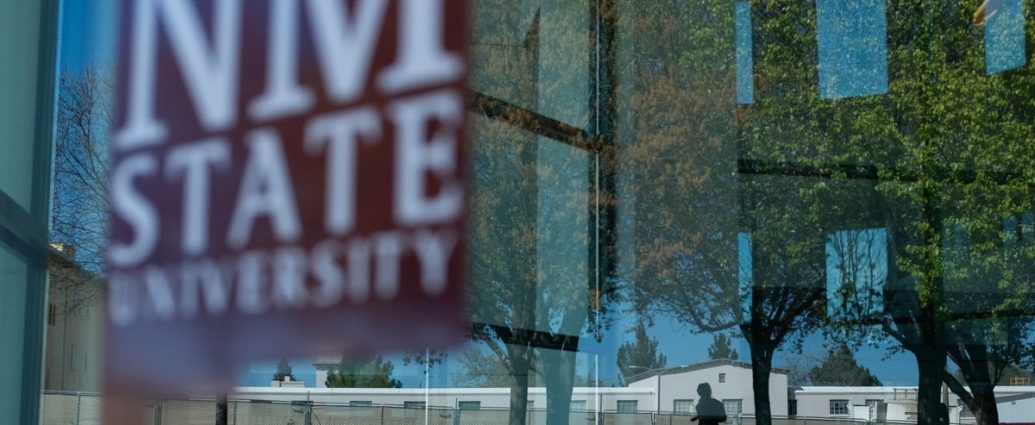New Mexico State University has lost nearly $25 million in research funding in the wake of recent federal executive orders aimed at reshaping how grant programs are administered.
Luis Cifuentes, NMSU’s vice president for research, said the losses include a mix of paused, rescinded and non-renewed awards — some of which had already been in motion. The university is now working to mitigate the impact on students, staff and community partners.
The directive behind the cuts was issued by the White House Office of Management and Budget on Jan. 27, 2025. It instructed agencies to review and temporarily halt grant programs in light of executive orders signed by President Donald Trump. Although a court later issued a temporary injunction, university officials say the damage was already done.
‘We’re doing everything we can to protect our capacity’
“We estimate a loss of approximately $25 million in active or pending research grants,” Cifuentes told Organ Mountain News. “This affects not only faculty and staff, but also graduate students, outreach partners and the communities we serve.” While large-scale layoffs have not occurred, some staff roles have been reassigned. Cifuentes said the university is conducting a full internal review to realign affected programs and preserve its ability to deliver research and outreach under its land-grant mission. Among the largest disrupted awards: a five-year, $10 million Environmental Justice grant from the U.S. Environmental Protection Agency. The grant funded the South Central Environmental Justice Resource Center, a regional technical assistance hub for underserved communities across EPA Region 6.Grant loss highlights vulnerability of service-oriented research
That program was led by Patricia Sullivan, associate dean in the College of Engineering. It provided hands-on support to rural businesses, municipalities and nonprofits in New Mexico, Texas, Oklahoma, Louisiana and Arkansas, helping them access funding under the Bipartisan Infrastructure Law and the Inflation Reduction Act. “We were helping communities understand what they wanted to accomplish and how to write a competitive proposal to get there,” Sullivan said. “It wasn’t just about funding — it was about building long-term capacity.” Her team had been authorized to spend up to $7 to $8 million but had only drawn down about $2 million when the award was terminated. The cancellation came just as the project was ramping up following a late contract start in October 2023. The program had already conducted energy audits for agricultural producers and hosted leadership development workshops in New Mexico and Texas. Sullivan said additional sessions were planned in Oklahoma and Arkansas before the contract was pulled.Student engagement and emergency funding solutions
While Sullivan’s grant was service-oriented and not heavily student-based, it employed graduate assistants and offered public-facing programming. Other affected departments, including biology, had more direct student research components. NMSU has confirmed those losses but declined to specify program names. OMN has requested an interview with biology professor Michelle Schuster to learn more. Despite the setback, some of the work has continued in New Mexico. Sullivan credited support from Rep. Nathan Small and the state Legislature, which secured a three-year appropriation to expand energy efficiency outreach. Tri-State Generation and Transmission also provided private support to continue services for rural electric co-ops and small businesses. “In New Mexico, we’re fortunate,” she said. “We still have the ability to build coalitions across political lines. That’s not always the case in other states.”Research mission remains, even as priorities shift
Cifuentes said the administration is working to protect NMSU’s long-term research infrastructure, even as federal priorities shift. “We’re not just a research university — we’re a land-grant institution,” he said. “We have a responsibility to serve the people of New Mexico.” That includes continuing applied research, student development and public engagement, regardless of changes in Washington. While some observers have linked the recent orders to federal efforts to curtail diversity, equity and inclusion programs, Cifuentes declined to comment on political motives. “Our job is to remain focused on impact,” he said. “That means keeping our research mission strong and accessible to the communities who rely on it.” Organ Mountain News will continue to follow this story as it develops.Advertisements


